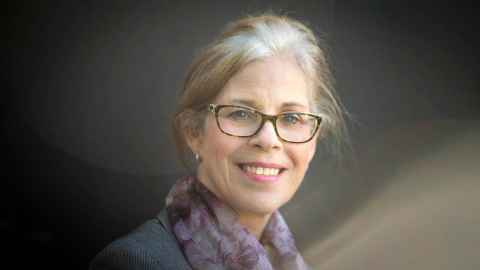Refugee students need more dedicated support to achieve potential
23 June 2021
Aotearoa New Zealand is performing reasonably well in its support of refugee education, but it needs more long term government support and to be less dependent on the good will of volunteers and short term funding.

Professor Dawn Freshwater, Vice-Chancellor of the University of Auckland, was part of a panel discussion on a webinar hosted by the United Nations Academic Impact group and the United Nations Refugee Agency on the theme Together We Learn. Its purpose was to share university and student led initiatives that support inclusion of refugees in national education systems.
The University, which was the first in New Zealand to formally recognise refugees as a designated equity group, has some 900 students who have self-identified as coming from a refugee background (SRBs). As a proportion of total student numbers (around two percent), this exceeds refugee representation in the wider New Zealand population.
“SRB enrich the diversity of our student body, bringing with them a wide range of different experiences, perspectives, traditions and cultures that we all learn from and benefit from,” Professor Freshwater believes.
“Our priority is to ensure that they have equitable access, participation, engagement and opportunities to succeed and thrive at the University, and then in the workplace.”
Professor Freshwater said that the UN had signalled an initiative to ensure 15 percent of all refugees were in tertiary education by 2030.
“Tertiary education creates upward social mobility, it connects people across difference, and provides insight into the complexities of the social, environmental, political and economic issues our societies face.
“The main investment for many refugee families is on their children and their future. Education is a key pillar of this.”
Students from refugee backgrounds enrich the diversity of our student body, bringing with them a wide range of different experiences, perspectives, traditions and cultures that we all learn from and benefit from.
The webinar followed closely after World Refugee Day on 20 June and is being introduced as a way to focus attention on the barriers people with refugee backgrounds face, including accessing higher education.
Professor Freshwater highlighted the principles of the 4-A Framework that inform the University’s approach to SRBs: Availability: free and compulsory education and respect for parental choice, Accessibility: eliminating discrimination in access to education, Acceptability: focus on the quality of education, and Adaptability: education that responds and adapts to the best interests of the learner.
“We need to move beyond just thinking about the availability of education also to consider whether it is accessible, adaptable and acceptable. This rights-based focus provides a basis to think about how our university listens and collaboratively responds to their learning aspirations and collaboratively responds to the associated barriers and challenges,” she said.
The University of Auckland is the international hub for the UN’s Sustainable Development Goal 4, Quality Education. It has established a range of initiatives and projects to support refugees in accessing a quality education as part of its commitment to safety, inclusion, and equity. These include refugee and achievement scholarships, pathway programmes, campus visits, faculty student advisers, an advisory group, and centralised information and profiles on the web pages managed by the Equity Office Te Ara Tautika.
Recently, the University set up a research hub for Asia-Pacific refugee studies, which has a focus on climate-change refugees.